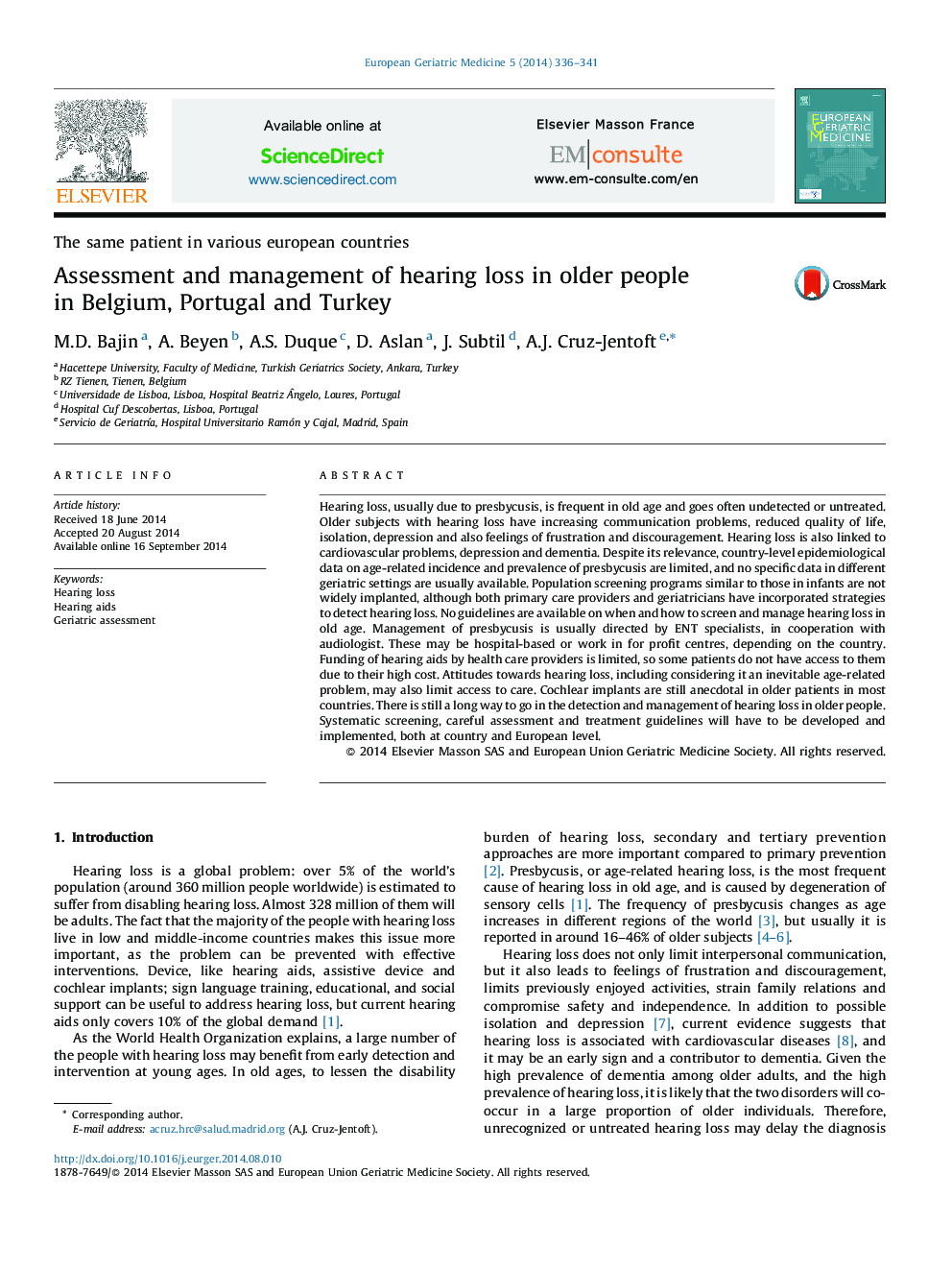| Article ID | Journal | Published Year | Pages | File Type |
|---|---|---|---|---|
| 3324187 | European Geriatric Medicine | 2014 | 6 Pages |
Hearing loss, usually due to presbycusis, is frequent in old age and goes often undetected or untreated. Older subjects with hearing loss have increasing communication problems, reduced quality of life, isolation, depression and also feelings of frustration and discouragement. Hearing loss is also linked to cardiovascular problems, depression and dementia. Despite its relevance, country-level epidemiological data on age-related incidence and prevalence of presbycusis are limited, and no specific data in different geriatric settings are usually available. Population screening programs similar to those in infants are not widely implanted, although both primary care providers and geriatricians have incorporated strategies to detect hearing loss. No guidelines are available on when and how to screen and manage hearing loss in old age. Management of presbycusis is usually directed by ENT specialists, in cooperation with audiologist. These may be hospital-based or work in for profit centres, depending on the country. Funding of hearing aids by health care providers is limited, so some patients do not have access to them due to their high cost. Attitudes towards hearing loss, including considering it an inevitable age-related problem, may also limit access to care. Cochlear implants are still anecdotal in older patients in most countries. There is still a long way to go in the detection and management of hearing loss in older people. Systematic screening, careful assessment and treatment guidelines will have to be developed and implemented, both at country and European level.
